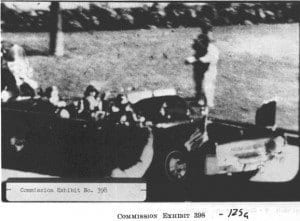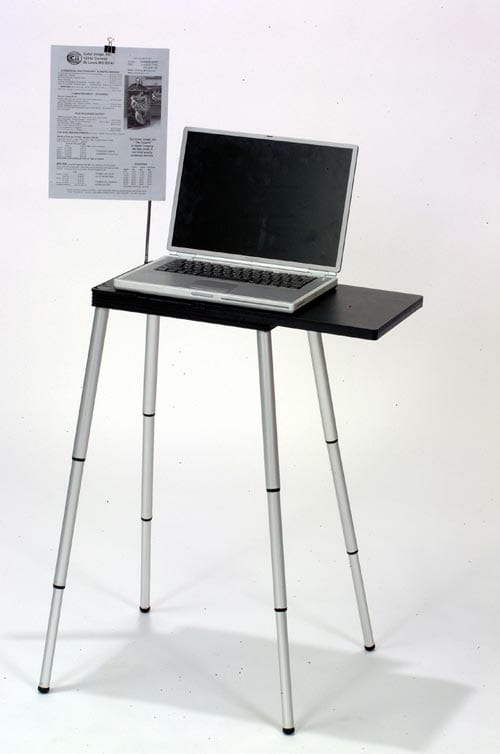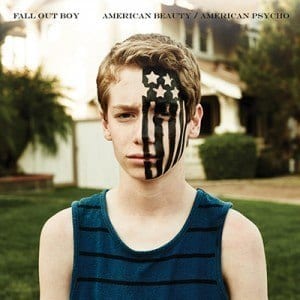Lifestyle & Fashion
Interviewing Michelle Perry Higgins: Avoiding "Bad" Debt and Saving Money
Ellen Zacarias

Money. It means different things to people. Financial freedom. Material pleasures. A fleeting resource. Savings for our dreams. Investing in our future. Whether some of us grew up with a savings account or spent our allowances on snacks and indulgences, money is a resource that we all must learn to manage because it encompasses an essential part of our lives–now, and later down the road.
When speaking with Michelle Perry Higgins, author of College Poor No More and financial planner at California Financial Advisors, I was struck by her charisma, warmth, and dynamic speaking style. From her voice, I could tell she loves what she does. She truly cares about educating people on how to manage their money.
Below is a transcript of the insightful talk with Michelle Perry Higgins about the money saving concepts that she covers in her book, College Poor No More (click to see review):
CN: Was your family frugal when you were growing up, or did you pick up these frugal skills later on in life?
MPH: I grew up in what I would consider the middle income class, but there were definitely times where my family really struggled financially. At a very young age, I was very sensitive to my parents always talking about money and making sure that we lived within our means. I wanted to make sure that in my lifetime I would be helping people with money because of having to listen to that.
CN: When are good money management habits formed in young people?
MPH: It’s really important that these habits are formed well before college. Unfortunately, what I found in research for this book is that students in college were never taught these good money management tips, and then it’s way too late by the time that they get to college, to all of a sudden learn what it means to budget, to look at your bank account, or to learn opportunity costs.
This book, the one hundred tips [in College Poor No More], really is helpful for those individuals who maybe feel like they’re not equipped, or they need a refresher on what they can do to stretch their dollar.
CN: Absolutely. This is one of the things that I wish my high school had a class on.
MPH: Yup. It’s so true. It’s a must, and ultimately, if it’s not taught, then it becomes a problem–debt accrues, or it becomes a big fight in relationships and marriages down the road. It’s a ripple effect, and that’s why I really wrote this book–to help students gain control of their finances before it’s too late.
I called [College Poor No More] the “bathroom book” because it’s a small book, it’s a 4 x 6″ book. I want it to be thrown all over your college dorm or apartment. It’s not something that I want you to say, “Oh my gosh, I gotta sit down and read another book!” It’s not like that. It’s something that you can flip through really quick while you’re watching TV, and grab a few tips here and there.
I want it to be a fun book with a lot of cartoons, so that it’s not another thing that you have to add to your schedule.
CN: Why is debt during or after college a problem?
MPH: Having student debt is not the problem. This book is not about me saying, “Oh, students shouldn’t have student debt.” I had student debt. I graduated from St. Mary’s College with student debt because I couldn’t afford to get through school without borrowing money.
What I am trying to say is a problem though, is taking more debt than you need. If you only need $15,000 of a loan every year, don’t take $20,000 if they’re going to give you $20,000. Only take the $15,000.
Don’t borrow more money than you need to. That’s really the bottom line: we don’t need you to graduate with more debt than you’re already going to have, because it’s going to be hard enough already to pay back existing debt. So it’s what I’ll call the “bad debt”.
We don’t want “bad debt” to accumulate in addition to the student loans that you’re already going to have to take. And that’s happening a lot, like, “Oh, I’ll just put the money into my savings so that I have money to go out and go to a football game”…And that $10 drink and that $20 hamburger at the football stadium really adds up.
If you don’t have that money, maybe you’ll drink that beer at your house before you go to the football game, which is a lot cheaper than spending ten dollars on a beer. It’s little things like that where I really want to help students realize that there is that “bad debt” that we want to stay away from.
CN: When I was in college, I kept getting all these credit card offers in the mail, and even on campus, they would have booths trying to sign students up. How can students avoid giving in to all these tempting credit card offers?
MPH: They gotta just keep walkin’. [Laughs.] Ignore the free shirt, ignore the free keychain, the free this, the free that–nothing is for free when it comes to credit cards. So, learn to live on a budget.
Learn to live within your means, then in your senior year, you can get a credit card. Then, by the time you do get that credit card during your final year of school, then you‘ve got it all figured out! No one’s going to want to have debt, it’s like why have debt? I’ve already gotten used to living this cash poor life if you will. That really helps a lot of students, when they realize, “I don’t need to have this debt hovering over my head.”
CN: Can you sign up for a credit card but not use it? Would that still affect your credit?
MPH: The reality is yes. Students can get the credit card and not use it, but it’s too tempting. So I wouldn’t recommend that. A lot of parents do give their child a credit card that they’ve co-signed on, and I would prefer that situation much more, because parents can monitor how much is being spent. It’s too darn easy to have a credit card and not use it when you don’t have the good money management skills yet. We need to build up the skills first before you go and have that temptation.
CN: What’s the number one mistake that college students make when it comes to managing money? Would it be going into too much debt with credit cards, or something else?
MPH: A lot of students feel like they’re in college, they’re not really on their own yet, and they don’t feel the need to take the time to figure out a way to stretch their dollar. A lot of this gets pushed by the wayside until they graduate. I don’t want to say it’s too late, because it’s never too late, but they really do need to take the time to understand good money management tips while they’re in college: to learn to live on 90% and save 10%, to never borrow, to check their credit once a year.
All of these basic tips are very vital, so a lot of college students are making the mistake of saying, “Oh, I’m just so poor, money management tips aren’t important to me now because I have none!” Well, yes, you do have money. You have allowances, you’re getting student loans, and we need to learn to stretch that dollar.
CN: How did you gather the money saving tips for the book?
MPH: Because I mentor a lot of interns, I was lucky enough to have students that worked for me. I had them help me do a lot of research, and having that team of students who were set in school, they really helped me find the tips to be relatable to students.
Hopefully when you read this book, you don’t feel like I am preaching to you, I want you to feel like, “I can do this! She understands me,” and that was with the help of my research and obviously having a whole team of students who helped me.
CN: There was this tip in the book, tip #67, “Convince one of your roommates to get a dog instead.” I laughed because I thought that was so clever, and also a bit evil, because it’s like, persuading a roommate to get a dog so that they’d be facing the costs instead of you. Was there any context to this tip? Where did this tip come from?
MPH: That one did come from one of my interns who, we were joking because he told me how everyone wants a dog on campus. Once you get off campus and have your own apartment, it’s like the cool thing to have a dog!
Then I said, “You know, let’s do some research and really find out how much a dog costs.” It was profound, I mean, it was thousands of dollars a year by the time you add up the cost of the dog, the shots, the food—animals are expensive.
Yet we do want them, and it’s kind of the first sign of independence, like, “I want a dog!” but for the time being, it’s best to pass on that, because you need those dollars for other things, which are more of a priority than having an animal while you’re in school. You’re better off getting something that doesn’t catch much. Like, get a fish. [Laughs.]
CN: Exactly. [Laughs.] Less upkeep.
MPH: Right. Right.
CN: What makes this book, in particular, stand out from other frugal advice books?
MPH: When I did the pre-writing of this book, I really went out to the market and said, “Okay. Is there a book like this on the market?”
I didn’t want it to feel like the other books that students are reading while they’re in finance class, because I knew that it’d end up in the garbage. I wanted something that packed a lot of information in a small, compact way that was relatable. And there was nothing else on the market that I could find that was like this.
I am really passionate about this because I mentor so many college interns. I really wanted to find a way to help college students gain control of their finances, and again, I just didn’t see anything like this on the market.
CN: What’s the top tip that you can share with us today?
MPH: The top tip…
CN: ...You’ve given us so much.
MPH: I know! The top tip…Which is the most important one? Well, one thing we haven’t covered is professional matters. Making sure that college students graduate and find a great job includes getting them financially ready, and also getting them professionally ready.
And I’m finding that a lot of students are not ready. They haven’t had internships, they haven’t joined clubs and gotten exposed to the outside world, or networked. They haven’t taken their wild stuff off of social media.
My greatest tip today is get an internship for the summer, one that is in your field or that you are passionate about, and put something that you’re proud of on your resume. Because employers like myself want to see internships or good jobs on your resume.
Here we are in the month of March, where everybody should be aggressively finding an internship for summer. Even though it’s wonderful to sit on the beach, even if it’s a couple hours a week and you have to go get another job where you’re making a lot of money, get that internship.
CN: Great advice.
MPH: Because ultimately, that is going to relate to finding a job and making good money when they graduate to pay off their student loans, so again, the ripple effect.
CN: Yes, absolutely. Build the resume.
MPH: Yes!
CN: And where can we get your book?
MPH: If you go to Amazon.com, it is on there, you can pre-order [College Poor No More] on Amazon, or if they want to learn more about me, follow me on social media, you can go to my website, MichellePerryHiggins.com, and everything’s on there.
CN: You lead an interesting career as a financial advisor. How can we learn more about you and your work?
MPH: Also on my website, MichellePerryHiggins.com, you will find that I have a Facebook page, I have a Twitter page, and so I’m very active on social media, and on the news, so there are a lot of different avenues to follow me. Or if students are interested in applying for internships with me, then they can send in their resume. I’d love to hear how everybody likes the book!
CN: Is there anything I haven’t asked you that you’d like to tell us?
MPH: 100% of the profits are going to college scholarships, that’s important to know. I really appreciate anyone who buys this as a college present, a graduation present for high schoolers, or for their college student, because all these profits are going back to raising money for scholarships.















